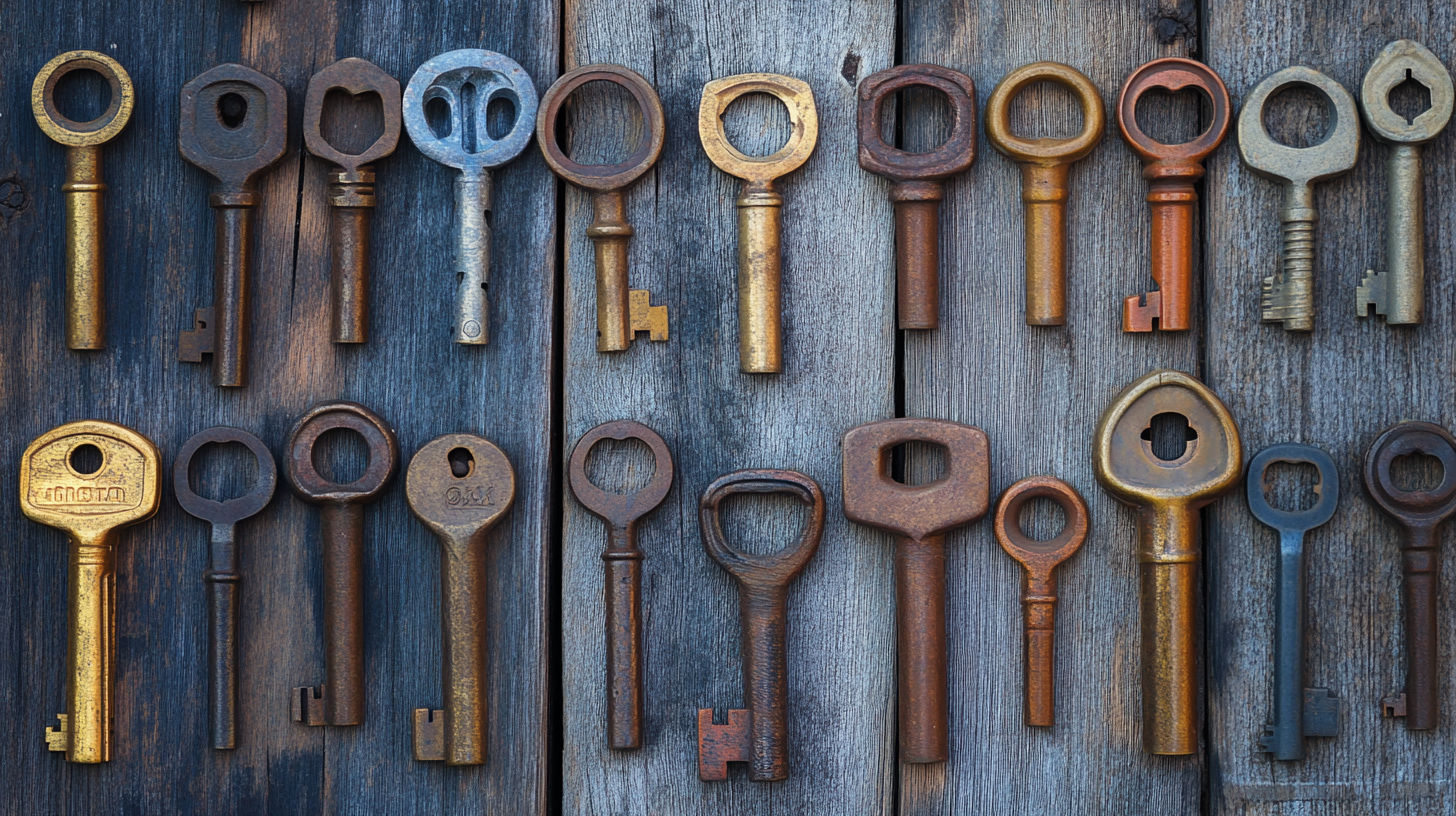Blog
How to Identify Reliable Suppliers for Tools for Homeowners in the Global Market
In today's global market, the demand for quality tools for homeowners is surging, driven by an increase in DIY projects and home improvement activities. According to a recent report by Statista, the global tools market is projected to reach approximately $34 billion by 2025, with a significant portion attributed to consumer spending on home maintenance. This growing interest highlights the necessity for homeowners to source reliable suppliers who can deliver high-quality tools that meet both their needs and safety standards. In an industry where quality can vary drastically, identifying trustworthy suppliers becomes a critical task for homeowners looking to invest in their living spaces.
Choosing the right supplier for tools for homeowners not only ensures that individuals receive durable and effective products but also affects the overall success of their projects. The 2023 Consumer Reports Home Improvement Survey revealed that over 60% of homeowners prefer to invest in tools that come with strong warranties and customer support. This statistic emphasizes the growing awareness among consumers about the importance of supplier reliability. Therefore, understanding how to assess and identify these suppliers is crucial for any homeowner aspiring to enhance their property while making informed purchasing decisions in the vast global market.

Understanding the Importance of Choosing Reliable Tool Suppliers in the Global Market
Choosing reliable tool suppliers is crucial for homeowners navigating the global market. The importance of selecting trustworthy suppliers cannot be overstated, as the quality of tools directly impacts both safety and efficiency in home improvement projects. A dependable supplier not only offers high-quality products but also ensures that those products are sourced ethically and sustainably.
In the global market, the vast array of suppliers can make it challenging to discern who can be trusted. One of the critical factors to consider is the supplier's reputation. Reviews and testimonials from other homeowners can provide insight into the reliability of a supplier. Additionally, certifications and adherence to international standards are indicators of a supplier's commitment to quality and safety. Engaging with suppliers who prioritize transparency in their operations can lead to more informed purchasing decisions.
Furthermore, establishing a relationship with reliable suppliers can lead to long-term benefits, such as better pricing, availability of new tools, and access to expert advice. When suppliers value customer relationships, they are more likely to provide support when issues arise, fostering a collaborative environment that benefits both parties. As homeowners invest in tools for their projects, recognizing the importance of choosing reliable suppliers can make a substantial difference in the overall success of their endeavors.

Key Characteristics to Look for in Trustworthy Suppliers for Homeowner Tools
When seeking reliable suppliers for tools tailored for homeowners in the global market, it’s crucial to identify key characteristics that indicate trustworthiness. One of the foremost qualities to consider is the supplier's reputation within the industry. Researching reviews, testimonials, and case studies can provide insights into their reliability and the quality of their products. A reputable supplier often has a track record of success and satisfied customers, making them a prime candidate for your home improvement needs.
Another critical aspect is the transparency of the supplier. Trustworthy suppliers openly share information about their sourcing methods, manufacturing processes, and quality control standards. They should provide clear details about materials used, warranties offered, and after-sales support. This level of transparency not only reflects their commitment to quality but also helps you feel more confident in your purchases.
Additionally, consider the supplier's commitment to customer service. Reliable suppliers typically offer responsive and helpful customer support, addressing any inquiries or concerns efficiently. Assessing their communication channels and response times can give you an idea of how they prioritize customer satisfaction. A supplier that values strong communication is likely to build a lasting relationship with its clients, providing peace of mind as you invest in essential tools for your home.
Evaluating Supplier Reputation: Research and Reviews in the Industry
When looking for reliable suppliers for tools in the global market, a critical aspect is evaluating their reputation through thorough research and reviews. In an era where information is readily available, leveraging industry-specific reports can provide invaluable insights into supplier reliability. For instance, according to recent studies, the credibility of a supplier can be significantly influenced by customer feedback, with a reported 73% of consumers relying on online reviews before making a purchase decision.
Furthermore, industry benchmarks indicate that suppliers with a strong reputation not only earn higher trust from consumers, but also demonstrate better performance metrics, including lower defect rates and quicker delivery times. A detailed examination of supplier histories can reveal patterns indicative of reliability; for example, a consistent record of timely delivery and positive customer satisfaction ratings often points to a dependable player in the market.
Additionally, engaging with online industry forums and leveraging peer-reviewed research can shed light on lesser-known yet reputable suppliers. The 2023 global rankings of research-focused institutions can also serve as a reference, showcasing connections between academic insights and supplier evaluations. An informed approach, utilizing available data and market research, will lead homeowners to the best tools and reliable suppliers.
The Role of Communication and Support in Supplier Relationships
Effective communication and support are vital components in building strong relationships with reliable suppliers in the global market, especially for homeowners seeking tools. When homeowners engage with suppliers, clear communication helps ensure that expectations are properly set, from product specifications to delivery timelines. This clarity minimizes misunderstandings and fosters a more cooperative relationship that can lead to better overall service.
Additionally, strong support systems from suppliers play a crucial role in maintenance and after-sales service. Homeowners need suppliers who are responsive to inquiries and concerns, providing timely assistance and solutions. This not only enhances customer satisfaction but also builds trust. Regular check-ins and updates from suppliers demonstrate commitment and reliability, allowing homeowners to feel secure in their procurement choices.
Furthermore, establishing open lines of communication encourages transparency regarding product quality and availability. Suppliers who actively seek feedback can adapt and improve their offerings, ensuring they meet the evolving needs of homeowners. In the global market, where options abound, prioritizing communication and support can set suppliers apart, making them the go-to sources for homeowners in search of the right tools.

Assessing Product Quality and Sustainability Standards in Tool Sourcing
When sourcing tools for homeowners in the global market, assessing product quality and sustainability standards is of paramount importance. The tools you select not only need to perform well but should also adhere to environmental and social governance practices. To evaluate product quality, homeowners should look into certifications that guarantee durability and safety. These certifications vary by region and type of tool but often include ISO standards, ANSI certifications, and various safety marks that indicate compliance with industry regulations.
Sustainability standards should also be a pivotal factor in the decision-making process. Tools produced with environmentally friendly materials and manufacturing processes demonstrate a commitment to sustainability. Homeowners can research supplier practices, such as the use of recycled materials and energy-efficient production methods, which indicate a supplier's responsibility towards minimizing environmental impact. Additionally, it’s beneficial to inquire about the supply chain to ensure that ethical labor practices are maintained throughout the production process.
In today’s market, you can find suppliers that not only provide high-quality tools but also prioritize sustainability. Engaging with manufacturers who embrace transparent practices can significantly enhance the purchasing experience. Ensuring that the tools are not only functional but also ethically produced will ultimately align with the values of homeowners who are increasingly oriented towards sustainable living and responsible consumption.
